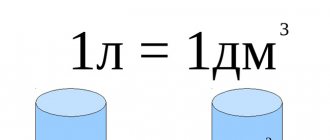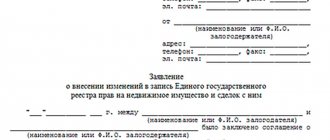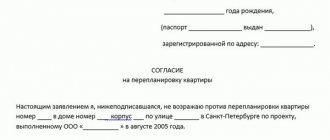Laws fixing general issues
The purchase and sale of real estate is not complete without the transfer of ownership from the citizen-seller to the citizen-buyer. The lion's share of laws concerning the transfer of ownership is contained in the Civil Code of the Russian Federation. They can be found in the second section of the Civil Code of the Russian Federation. As for the rights that the new owner of an apartment receives when purchasing it, you can find out about them in the Housing Code of the Russian Federation.
If we talk about specific procedures, the most important of them is registration of ownership of new housing . The registration scheme is outlined in the Federal Law on State Registration. According to this legal act, a citizen must register a new apartment with Rosreestr. Only after this action does he become the full owner of the real estate. A detailed list of documents can also be found in this legislative act.
The Civil Code of the Russian Federation also contains the grounds for drawing up a contract for the sale and purchase of an apartment, as well as the main reasons for its termination. These points are considered especially important because without this agreement the fact of sale of the home cannot be legally recognized.
New rules for selling a share in an apartment
The main problem is the increasing cost of services. Previously, before the adoption of the law, to conclude a transaction it was enough to draw up a purchase and sale agreement for an apartment or house. But with the advent of amendments to the bill, persons participating in the transaction must now pay a fee for notary services.
Starting from 2020, non-residents may not pay personal income tax when selling property that they have owned for more than the minimum established period. If the apartment was owned for less than the established period, the sales tax will be 13%, regardless of residence.
To determine the specific part of the apartment that belongs to a person, you can carry out the procedure for allocating a share. The main requirement is that all other homeowners must be informed about this.
In December 2020, the State Duma of the Russian Federation approved amendments to the tax code, according to which non-residents who sell property in Russia may not pay sales tax.
In this case, you need to wait a month. After this period, the ransom is automatically rejected, even if there is no response.
It should be noted that if the owner’s share in the apartment is less than the size established by law, then he will not have the right to fully dispose of it, but can be registered on the territory of the given residential premises. That is, he will not be able to sell or give it away, but he has the right to use it for the purposes of residence and permanent registration.
The notary is responsible for ensuring that fraudulent schemes and situations where one of the parties is infringed on in rights or interests are excluded from the process. The Home Shared Ownership Act increases stricter controls on such transactions involving minors. One of the measures is the mandatory provision of notarization.
There is a restriction on the owner’s right to move in “third parties” if, as a result, each person ends up with less than the accounting norm for the area of the residential premises. One of the amendments introduced after the first reading states that moving into a share less than the norm is allowed only in certain cases, for example, by court, or if it is a child or parents of the owner.
Housing issues can become a real problem for a homeowner. Especially when it comes to selling a share in an apartment. Situations when such a need arises happen very often. The reason may be the divorce of a married couple or the inheritance of a share, as well as an urgent need for a large amount of money.
The possibility of carrying out such transactions led to the formation of a number of fraudulent schemes, in particular those related to the acquisition of several small shares in one premises for the purpose of the further survival of its real owners. In a word, the result of allowing the sale of microshares was numerous scams and deceptions of ordinary citizens.
This is important to know: Document confirming ownership of the land
The Mortgage Law regulates the purchase and sale of housing on credit
Only a small part of Russian residents can afford to purchase real estate without going to the bank for a loan. Another part of the population takes out a loan due to lack of funds. All business relationships arising after applying to a bank for a loan are regulated by the Federal Law on Mortgage or Real Estate Pledge. In it you can read under what conditions the bank can issue a loan, and what percentage it has the right to charge for its services.
The law also defines the basic rules for taking a loan from a bank. However, each banking institution can introduce its own conditions for lending, so before buying a home you should visit several banks. As a result, you need to choose the one where the mortgage rate will be lower.
Positive aspects of the law for honest purchasers
Before the adoption of the mentioned law, people who found themselves in such a situation were left alone with their problems. People who bought an apartment using mortgage programs found themselves in a particularly difficult situation. They were obliged to pay funds for the property seized by a court decision.
Until today, no one could help these people - bona fide purchasers. Their real estate, as a rule, was taken away by court decision.
There were signs of fraudulent actions on the part of the seller, but from the legal side, a bona fide buyer of the apartment could not protect himself. A number of key points stipulated in the above-mentioned law prevent the repetition of such incidents in the future:
- a clear definition of the person who is a bona fide purchaser ();
- government authorities cannot seize real estate that has left its possession from a bona fide buyer;
- the state does not have the right to seize real estate if more than three years have passed from the date of entry into the state register of an entry on the ownership of a bona fide buyer ().
Recommended article: Sale and purchase agreement with a mortgage - important points for the seller and buyer
To understand how to prove that the buyer is in good faith, you need to familiarize yourself with the basic definitions relating to this law. So:
- when concluding the contract, the buyer had no idea that the seller did not have the rights to take actions related to the sale of the property;
- housing was purchased for money.
At the same time, the law on the bona fide purchaser of real estate from 2020 requires the fulfillment of its duties, which are as follows:
- make sure the seller has the right to conduct a real estate transaction;
- check the compliance of information on real estate with the information of the Unified State Register of Real Estate;
- make sure that there is no third party entitled to the property;
- obtain the consent of a third party or government authorities to conduct a transaction.
The fulfillment of the above-mentioned points practically reduces to zero the possibility of reclaiming land plots and other real estate from bona fide buyers in favor of the state. In the event of loss of rights to real estate, financial guarantees are provided that provide for the payment of compensation.
Law on housing privatization
Non-privatized housing, in other words apartments owned by municipal authorities, cannot be sold by people who are registered and live in them. Such citizens must first go through the privatization process.
This procedure is described in detail in the Russian Federation law on the privatization of municipal property. There you can find a list of objects that can no longer be privatized, a detailed list of necessary documents is recorded and the conditions necessary to complete the privatization process are described.
tax code
In the Tax Code you can find the legislative procedure for paying state duty on the income of individuals. The fact is that the sale of an apartment brings significant income to home owners, so it is subject to a tax rate of 13% of the total cost of the apartment sold.
Chapter 25 of the Tax Code of the Russian Federation establishes the exact amount of the duty, the procedure for filling out the declaration, as well as the deadline for paying tax on the sale and purchase of an apartment. You can also find a list of benefit citizens who have the opportunity to save money on paying taxes.
A separate clause in the Tax Code indicates the possibility of obtaining a tax deduction. It exempts homebuyers who have spent a decent amount of money from paying additional stamp duty.
Events of the year 2020
These figures also include those owners who became victims of deception. We are talking about people who honestly bought a home, and then, sometimes years later, it suddenly turned out that the purchased apartment had a dark past. Such a past means that the rights to square meters were obtained by deception by forging documents. Most apartments were stolen from the state. After the death of the owner of a municipal apartment, for example, the right to inheritance was falsified. Now the apartment will not be taken away from bona fide home buyers.
Until now, no one could help such people. According to Rosreestr, in the first half of this year alone, the country considered 9,890 claims demanding the return of real estate. Of these, 267 claims related to housing. The record holders for such claims are Moscow, St. Petersburg, Krasnodar Territory and Rostov Region. The courts took away housing, and entire families found themselves, as they say, broke - no apartment, no money. Now, thanks to the new law, the situation will change, and radically.
In order to solve the problem of the affected people, many people worked - legislators, judges of the Constitutional Court of the Russian Federation, lawyers from many ministries and departments. It was invisible to ordinary people, but, believe me, very difficult work. It was especially difficult for those who bought such housing with a mortgage - once on the street, citizens were forced to pay the bank money for the taken square meters. All officials agreed that the people suffered innocently, they were conscientious purchasers, but they shrugged it off - everything was according to the law.
And now, in order. So, on January 1, 2020, Law No. 430 comes into effect. It changed some articles of the Civil Code of the Russian Federation. They concern the rights of bona fide purchasers of privatized apartments from “seizure of housing in favor of the state.” The bill was submitted to the State Duma at the request of the Constitutional Court.
RG experts discuss the legal aspects of housing transactions in the “Legal Consultation” section
Article 8.1 of the Civil Code of the Russian Federation on state registration of rights to property has been supplemented with a definition of who is a bona fide purchaser. They are recognized as the acquirer of the property, who was based on information from the state register.
Article 302 of the Civil Code of the Russian Federation was also changed - “reclamation of property from a bona fide purchaser.” It was supplemented with a new clause according to which the state, subject of the Russian Federation, or municipality do not have the right to reclaim residential premises that have been removed from their possession from a bona fide purchaser. This restriction will also apply in cases where such housing was acquired free of charge (for example, through inheritance or donation) or left the possession of authorities against their will.
Until today, no one could help such people - bona fide purchasers. Their housing, as a rule, was taken away by court decision.
When considering such cases, the courts will establish the fact of the purchase of housing in good faith. This will protect the owners of privatized housing, which was stolen from the authorities by fraudsters.
At the same time, the state retains the right of recourse against fraudsters. If they get caught.
The bill passed through the Duma with difficulty. Important amendments were introduced for the second reading, which were discussed by the Deputy Minister of Economic Development of the Russian Federation, the head of Rosreestr, Victoria Abramchenko.
They established a presumption of good faith if they purchased housing based on Rosreestr data. The rules regarding the periods of acquisitive limitation have been clarified (Article 234 of the Civil Code of the Russian Federation). The period begins from the day the property comes into open possession of a bona fide purchaser. And if the ownership right of a bona fide purchaser of housing, which he owns openly, has been registered, no later than the moment of state registration of such right.
Another key norm has been added. The state, subject, municipality cannot demand an apartment in court if three years have passed since the date of entry into the Unified State Register of Property Rights of the first bona fide purchaser. It is up to the authorities to prove the buyer’s dishonesty.
In August, Russian President Vladimir Putin signed amendments to the Law “On State Registration of Real Estate” regarding the payment of compensation to bona fide purchasers for the loss of ownership of housing, if this does occur. The document was developed according to the order of the Constitutional Court.
This law will also come into force on January 1, 2020. The rules on compensation have retroactive effect. Within three years after its entry into force, those citizens who previously lost their housing will be able to go to court to demand compensation. The treasury will pay at the choice of the copyright holder - either in the amount of actual damage, or based on the cadastral value of the seized real estate.
Quote
Pavel Krasheninnikov, Chairman of the State Duma Committee on State Construction and Legislation:
“The law, together with the new rules on compensation, will better protect the property rights of bona fide purchasers of real estate and provide additional guarantees to ensure the constitutional right of citizens to housing.”










